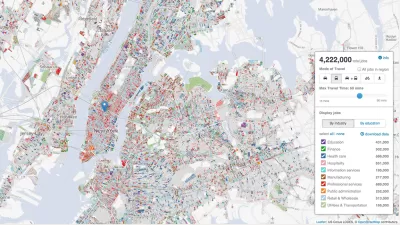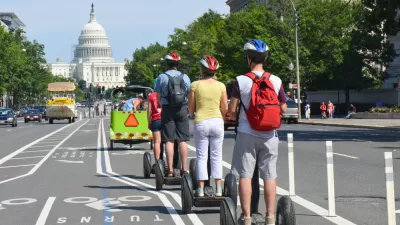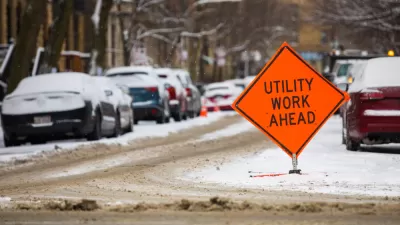Researchers at the University of Chicago are tackling a problem that is confronting the globe's biggest cities: how to turn the reams of data being collected and opened to the public and turn it into actionable information for decision-makers.
Sam Cholke reports on the aspirations of the new Urban Center for Computation and Data (UrbanCCD), which "will apply the most advanced computational and data-driven techniques to the challenge of intelligent urban planning and design." Funded with an initial $600,000 grant from the National Science Foundation, and led by computer scientist Charlie Catlett, the Center is a joint initiative between the University of Chicago and Argonne National Laboratory.
With an unprecedented volume and diversity of data being made available to the public and researchers, "Catlett and a collection of doctors, urban planners and social scientists want to analyze that data so to solve urban planning puzzles in some of Chicago’s most distressed neighborhoods and eliminate the old method of trial and error," says Cholke.
“Right now we look around and look for examples where something has worked or appeared to work,” said Keith Besserud, an architect at Skidmore, Owings and Merrill's Blackbox Studio and part of the new center. “We live in a city, so we think we understand it, but it’s really not seeing the forest for the trees, we really don’t understand it.”
"Besserud said urban planners have theories but lack evidence to know for sure when greater density could improve a neighborhood, how increased access to public transportation could reduce unemployment and other fundamental questions," notes Cholke.
Could UrbanCCD provide that scientific foundation that those within and outside the planning profession have been clamoring for?
“We’re going to try to break down some of the really tough problems we’ve never been able to solve,” Besserud said. “The issue in general is the field of urban design has been inadequately served by computational tools.”
FULL STORY: Researchers Say Much to Be Learned from Chicago's Open Data

Planetizen Federal Action Tracker
A weekly monitor of how Trump’s orders and actions are impacting planners and planning in America.

Maui's Vacation Rental Debate Turns Ugly
Verbal attacks, misinformation campaigns and fistfights plague a high-stakes debate to convert thousands of vacation rentals into long-term housing.

San Francisco Suspends Traffic Calming Amidst Record Deaths
Citing “a challenging fiscal landscape,” the city will cease the program on the heels of 42 traffic deaths, including 24 pedestrians.

Defunct Pittsburgh Power Plant to Become Residential Tower
A decommissioned steam heat plant will be redeveloped into almost 100 affordable housing units.

Trump Prompts Restructuring of Transportation Research Board in “Unprecedented Overreach”
The TRB has eliminated more than half of its committees including those focused on climate, equity, and cities.

Amtrak Rolls Out New Orleans to Alabama “Mardi Gras” Train
The new service will operate morning and evening departures between Mobile and New Orleans.
Urban Design for Planners 1: Software Tools
This six-course series explores essential urban design concepts using open source software and equips planners with the tools they need to participate fully in the urban design process.
Planning for Universal Design
Learn the tools for implementing Universal Design in planning regulations.
Heyer Gruel & Associates PA
JM Goldson LLC
Custer County Colorado
City of Camden Redevelopment Agency
City of Astoria
Transportation Research & Education Center (TREC) at Portland State University
Jefferson Parish Government
Camden Redevelopment Agency
City of Claremont





























